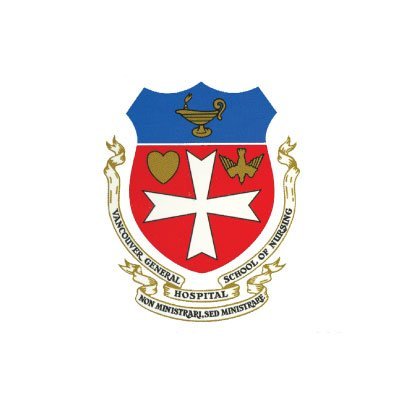 Mary-Elizabeth Bradley Eilertsen Sept’ 78by: Mary-Elizabeth Bradley Eilertsen Sept’ 78
Mary-Elizabeth Bradley Eilertsen Sept’ 78by: Mary-Elizabeth Bradley Eilertsen Sept’ 78
Congratulations to Mary-Elizabeth who recently completed a doctoral thesis at NTNU – Trondheim, Norwegian University of Science and Technology in 2111.The following are excerpts from this thesis that will be of special interest to our readers.
Background: Childhood cancer involves a crisis for the child and their family where they face many challenges to achieve normality after diagnosis, even after successful treatment. In 1985, a professional collaboration model (PCM) was developed at the Department of Pediatrics, St. Olavs University Hospital, Trondheim where the goal was to offer optimal follow-up care to children with cancer and their families.
In Norway, approximately 120-150 children and adolescents under the age of 15 are diagnosed with cancer each year (annual incidence 16.2/100,000) and approximately 40 children die yearly of their cancer illness (Cancer Registry 2009). The most common type of malignancy in children is leukaemia, accounting for approximately 1/3 of childhood cancers. The second most frequent malignancy in children is tumours of the central nervous system.
Survival rates for childhood cancer have improved dramatically through the past years, resulting in a growing population of childhood cancer survivors. With the help of cancer treatment such as chemotherapy, radiation, surgery and improved supportive care (both somatic and psychosocial) nearly 80% of children currently treated for cancer will become long-term survivors
Aim: The aim of this two part study was to explore social support, psychosocial health and quality of life for children and adolescents surviving cancer. Health and non-health professionals from the families’ home communities caring for children treated at the Department of Pediatrics, St. Olavs University Hospital in Trondheim, Norway between 1990 and 1996 were invited to participate in part 1 of this study. Part 2 was a case-control study including 50 children and adolescents diagnosed with cancer between January 1, 1993 – January 1, 2003.
Clinical background – clinical reflection
For over 25 years I worked in the field of pediatric oncology, employed as a nursing advisor in the Norwegian Cancer Society (1980-2004), and collaborated with the Department of Pediatrics, St. Olavs University Hospital, Trondheim, Norway. As a nursing advisor I worked in close contact with children with cancer and their families, and collaborated with both health and non-health professionals in Central Norway. I was privileged to follow these children through the different phases of their illness and treatment, as well as after completion of treatment. As a result, I had the opportunity to view the extent of how children themselves, as well as their parents and siblings were able to adapt back to their normal life with family, friends, school and work (parents). I also had the opportunity to be a part of a team which built up a professional collaborative model (PCM) for children with and surviving cancer, essential for follow-up care and rehabilitation of children with a chronic, life-threatening illness.
Children with cancer were subjected to intense and long-term treatment with a diagnosis that was fatal without the required treatment. In my experience, most families had an enormous burden to carry over many years. Even though the strain of the cancer illness and treatment was difficult and the sick child’s future was uncertain, many families appeared to function well and adapted back to their “normal” life, coping well in their daily living. However, other children and their families often seemed to struggle “alone” back to their normal daily living at home, as well as at school or work (parents).
Through these years of clinical work I was fortunate to experience that many children survived their cancer diagnosis, something which gave me a desire and a need to document the effect the cancer illness and its treatment had on the child, even several years after their diagnosis. It was both the families that functioned well, as well as the families that struggled back to a “normal” life that inspired me to evaluate the PCM and further explore psychosocial health and quality of life quality of life for children and adolescents surviving cancer. Obtaining more information and new knowledge of what children themselves experience, as well as their parents was an important goal in improving follow-up care through the PCM, thus giving the necessary social support and rehabilitation essential for the individual child surviving cancer and their family. My goal and dream started after evaluating the PCM in 1997 and became a total reality in 2006 after receiving a grant from NFR (The Research Council of Norway) and HiST (Sør-Trøndelag University College) enabling the possibility to achieve more knowledge about children and adolescents surviving cancer.
Conclusions: To improve the child’s psychosocial health and quality of life our results indicate that a collaborative approach is an important resource for social support and is essential in planning and implementing the necessary interventions for long-term follow-up care and rehabilitation for children and adolescents with cancer, especially for survivors with brain tumours, and those with late effects. To gain a comprehensive understanding our results also show the need to particularly take into account subjectively perceived and proxy reported quality of life, in addition to children and adolescents’ psychological problems and psychosocial functioning.
It is my greatest desire that this research promotes to an increasing knowledge in the profession and practice of nursing in evidence-based nursing, which can contribute to optimal social support and rehabilitation necessary for children and adolescents surviving cancer and their families, as well as the professionals caring for them. In this study we have gained knowledge after asking the ones that could give us this knowledge: children and their families and the professionals working in close contact with them.
Four articles have been published internationally. If you wish more information on Mary-Elizabeth’s impressive research contact her at mary.elizabeth.eilersen@hist.no



